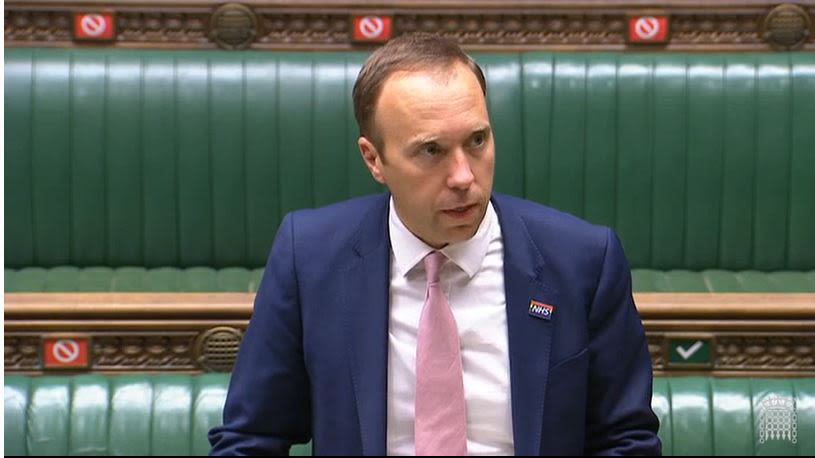Why doing nothing about social care is no longer an option
Read about how we reached the conclusion that a £7 billion increase in annual funding can only be the starting point for social care reform

For decades, successive governments have struggled with the problem of how to fund social care. Despite many White and Green Papers, consultations and independent reviews, no lasting solution to the problems in social care has been implemented.
The case for making a sustained investment in social care has never been stronger – the toll the Covid-19 pandemic has taken on this sector means that social care is no longer a hidden problem, but one that the country now understands.
The Government must now address this crisis as a matter of urgency.
Current funding problems

Social care is not free at the point of use. People with savings or property worth over a certain, modest amount need to use their savings or even sell their home to fund their care. Councils – 'local authorities’ – only fund social care for people with assets below £14,250.
Therefore, the first part of the social care funding problem described by the Secretary of State and other witnesses we heard from during the inquiry, is whether council funding for social care is enough. Many different governments have had to respond to councils’ rising need for social care funding over the years. However, there hasn’t yet been any long term commitment from the Government to fund social care.
The negative impact of funding shortfalls on social care users
During our inquiry we heard from Kevin Caulfield, a Disabled person and wheelchair user with a rare neurological condition. He highlighted the risk of people going into debt to fund the care that they need.
"It absolutely cannot be acceptable in the 21st century that people are falling into debt to pay for the support that they need and end up in the legal system as a result."
We also heard from Anna Severwright, a social care user.
How funding difficulties impact the social care workforce
Over 20% of care workers are paid only the National Living Wage of £8.72 per hour, with 1 in 5 care workers under the age of 25 paid less than this, and the proportion of care workers paid on or above the ‘Real Living Wage’ of £9.00 per hour has decreased significantly from 25% in September 2012 to just over 10% in March 2019.
"We have 13 councils paying less than £15 an hour. That does not even cover the national legal minimum wage and statutory employment on-costs"
Impact on the social care market
Social care is delivered by thousands of mainly private companies. Because of funding pressures councils have been trying to limit how much they pay for services, but it has become more expensive for companies to provide care, especially staff costs as a result of the minimum wage.
The result is that more and more companies providing care are going out of business or being forced to cancel their contracts with councils.
What the Government needs to do:
- We are calling for a significant funding increase, at a time when public finances are likely to be stretched, but the pandemic has made it clear that doing nothing is no longer an option.
- The starting point must be an increase in annual funding of £3.9 billion by 2023–24 to meet demographic changes and planned increases in the National Living Wage.
- But even this much extra funding won’t improve care or mean more people can access care. That’s why we recommend that the Government raises the annual adult social care budget by £7 billion by the end of the parliament as the starting point for a wider series of reforms.
The social care workforce

Around 1.49 million people in England work in social care jobs across 18,500 organisations. The sector is under significant pressure, with 122,000 jobs unfilled, a turnover rate of 30.8%, and a quarter of staff employed on zero hours contracts.
The challenges faced by social care staff during the pandemic were made worse by problems in providing them with enough personal protective equipment (PPE), as well as regular coronavirus testing.
Workforce recognition
The care workers we heard from told us that they felt a lack of recognition during the pandemic, especially compared to the recognition shown to their colleagues in the NHS.
"I do not think that the [care workers] staff are given the same recognition as staff who work for the NHS. Even at the weekend, there was this amazing sign in a shop window saying 30% off for all NHS employees. That is really demoralising, because we are making the same effort and doing the same work.
Pay and working conditions
The people we heard from during our inquiry pointed out that pay in social care is uncompetitive, not just compared to health but also to sectors such as retail. This devalues social care workers who are often highly skilled and is a factor in the number of people leaving jobs in social care and the high numbers of vacancies.
"We have had members of staff come for a short period and then leave because they can earn more in retail with less responsibility. Unfortunately, that is the truth, and that is when we are paying them well and retaining them."
Working conditions are also an issue. Throughout our inquiry, many organisations have highlighted that a quarter of workers in social care are employed on zero hours contracts with no set hours. Social care workers on zero hours contracts are more likely to leave their jobs.
Immigration
Around 17% of social care workers come from outside of the UK, rising to 40% in London. A large amount of the written submissions we received expressed concern about the impact of the Government’s Immigration Bill on the social care sector, given that the average salary in social care will fall below the Government’s proposed salary threshold. We are concerned that lower qualified social care workers and those without qualifications will not be eligible for the new NHS visa.
What the Government needs to do:
- The next Spending Review should ensure sustainable funding to provide competitive pay for social care workers and ensure comparable pay with NHS staff.
- To bring forward plans to support better employment conditions for the workforce, including reducing the number of zero hours contract and improving sick pay.
- To ensure that social care workers can continue to be recruited from overseas for as long as it takes to make sure there are enough social care workers trained in the UK.
- To accept the Migration Advisory Committee’s recent recommendation to add senior social care workers to the shortage occupation list.
What happens next

Our report "Social Care: funding and workforce" was published on Thursday 22 October 2020.
The Government's response to our report was published on 29 January 2021.
Detailed information from our inquiry can be found on our website.
If you’re interested in our work, you can find out more on the Health and Social Care Committee website. You can also follow our work on Twitter.
The Health and Social Care Committee is a cross-party committee of MPs that scrutinises the work of the Department of Health and Social Care and its associated public bodies.
Cover image: Bournemouth Borough Council via Flickr


